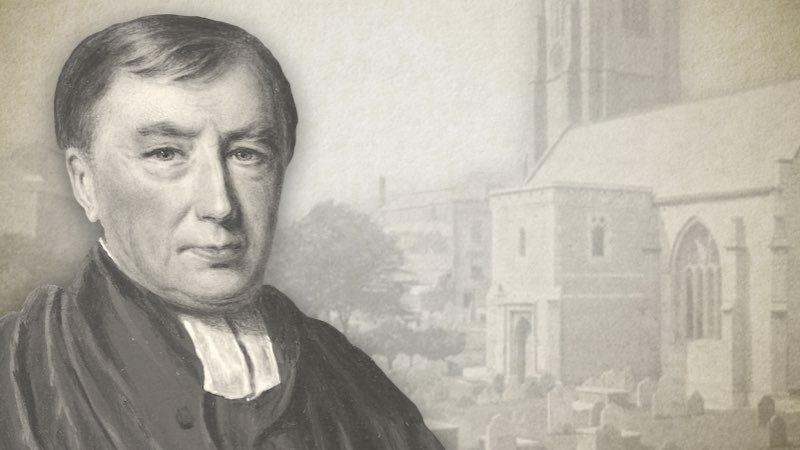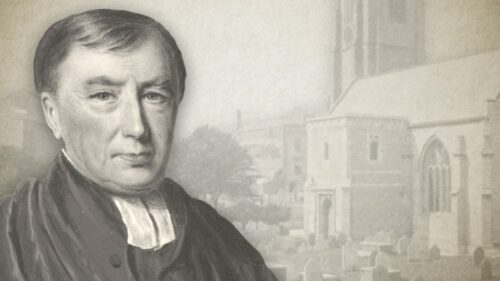
June 12—Morning Devotion
“And confessed that they were strangers and pilgrims on the earth.”—Hebrews 11:13
My soul, hast thou also witnessed this confession before many witnesses? See whether thou hast the same evidences they had. In the first place, they were led to see that here they had no continuing city. Sin, sorrow, sickness, death, inhabited this region. Every thing said to them in that sweet voice of God, “Arise ye, and depart, for this is not your rest, because it is polluted.” What sayest thou, my soul, to this first view of the subject? Look at it under another. Hast thou learnt, and so learnt as to prize it, the blessedness of that promise, “there is a rest that remaineth for the people of God?” What sayest thou to this also, my soul? Dost thou see that Jesus is that rest, and is he the object of thy desire in rest? For the prophet saith, “He is the rest wherewith he will cause the weary to rest, and he is their refreshing.” Isa. xxviii. 12. Hast thou heard and welcomed his invitation?—”Come unto me, all ye that labour and are heavy laden, and I will give you rest!” Go one step further in the enquiry. Under these convictions of soul art thou travelling the heavenly road, asking the way to Zion with thy face thitherward, as a stranger and a pilgrim upon earth? Go further yet. Art thou guided, as Israel was in the way, by the pillar of cloud by day, and guarded by the pillar of fire by night? Art thou coming up out of the wilderness of this world, leaning upon Jesus? Advance yet further in the enquiry. While the Holy Ghost as the pillar of cloud is going before thee, and thou art resting upon Jesus as thy staff and stay, knowest thou God for thy Father, his word thy guide, his promises thy treasure, his ordinances thine inns, not to dwell in, but like the wayfaring man to tarry but for the night? And dost thou draw water with joy out of those wells of salvation? Pause, my soul, as thou seekest answers to these questions. knowest thou the difficulties of a wilderness dispensation; and the sweets of those streams from that river which make glad the city of God? Art thou like other travellers, sometimes enjoying fine weather when Jesus’s face, his love, his mercy, are all in view; and sometimes walking in darkness, when storms of sin and Satan throw clouds over the gracious prospect? More especially, art thou the scorn and derision of the carnal? Do they make thee their subject of laughter, and art thou the drunkard’s song? And, lastly, to mention no more, knowest thou, my soul, what it is sometimes to be discouraged by reason of the way, while Satan would prompt thee to go back; but sweetly constrained by Jesus’s love, thou art still the patient follower of them “who through faith and patience inherit the promises?” Hast thou, my soul, these precious marks of the stranger and pilgrim upon earth? Oh then, remember what is said of them to whom the Holy Ghost bears testimony, and by thy covenant interest in Jesus behold thy vast privilege in the same blessed promise; God is not ashamed to be called their God, for he hath prepared for them a city.
Robert Hawker (1753-1827) was an Anglican (High-Calvinist) preacher who served as Vicar of Charles Church, Plymouth. John Hazelton wrote of him:
“The prominent features…in Robert Hawker's testimony…was the Person of Christ….Dr. Hawker delighted to speak of his Lord as "My most glorious Christ.” What anxious heart but finds at times in the perusal of the doctor's writings a measure of relief, a softening, and a mellowing? an almost imperceptible yet secret and constraining power in leading out of self and off from the misery and bondage of the flesh into a contemplation of the Person and preciousness of Christ as "the chiefest among ten thousand and the altogether lovely." Christ and Him crucified was emphatically the burden of his song and the keynote of his ministry. He preached his last sermon in Charles Church on March 18th, 1827, and on April 6th he died, after being six years curate and forty-three years vicar of the parish. On the last day of his life he repeated a part of Ephesians 1, from the 6th to the 12th verses, and as he proceeded he enlarged on the verses, but dwelt more fully on these words: "To the praise of His glory Who first trusted in Christ." He paused and asked, "Who first trusted in Christ?" And then made this answer: "It was God the Father Who first trusted in Christ."
Robert Hawker on the Biblical Covenants (Complete)
Robert Hawker's Poor Man's Morning Portions





